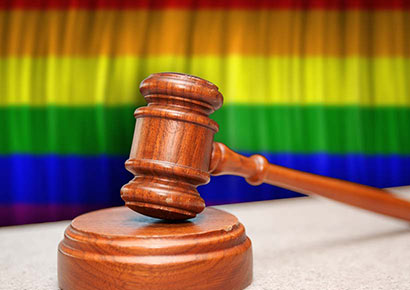Trans rights victory as Guyana’s ‘cross-dressing’ law ruled unconstitutional
 The Caribbean Court of Justice (CCJ) has ruled that a law banning people in Guyana from dressing in the clothes of the ‘opposite sex’ in public is unconstitutional.
The Caribbean Court of Justice (CCJ) has ruled that a law banning people in Guyana from dressing in the clothes of the ‘opposite sex’ in public is unconstitutional.
The ruling was aptly issued during Transgender Awareness Week, being marked from 12 to 19 November. The discriminatory law has been ordered to be struck from the laws of Guyana.
The case had its basis in the arrest of four transgender individuals, Quincy McEwan, Seon Clarke, Joseph Fraser and Seyon Persaud (as named by the court), in February 2009.
They all pleaded guilty to the cross-dressing charge and were fined. Upon imposing the sentence, the magistrate told them that they must go to church and give their lives to Jesus Christ and advised them that they were confused about their sexuality.
Supported by the Society Against Sexual Orientation Discrimination (SASOD) the four took the matter to the High Court of Guyana arguing that the colonial era law, enacted in 1893, was discriminatory and unconstitutional.
However, both the High Court and the Court of Appeal in Guyana denied the constitutional challenges. The appellants then took their case to the CCJ.
A five member panel of judges of the CCJ ruled that the law was from a different time and no longer served any legitimate purpose. “Law and society are dynamic, not static,” said The Hon. Mr. Justice Saunders.
“If one part of the Constitution appears to run up against an individual fundamental right, then, in interpreting the Constitution as a whole, courts should place a premium on affording the citizen his/her enjoyment of the fundamental right, unless there is some overriding public interest.”
The court also ruled that the law resulted in transgender and gender non-conforming persons being treated unfavourably by criminalising their gender expression and gender identity. The CCJ further found that the remarks made by the magistrate, immediately after sentencing the appellants, were inappropriate.
According to the court, “judicial officers may not use the bench to proselytise, whether before, during or after the conclusion of court proceedings. Secularism is one of the cornerstones upon which the Republic of Guyana rests.”
Guyana is located on the northern mainland of South America and is often considered part of the Caribbean region.
Leave a Reply